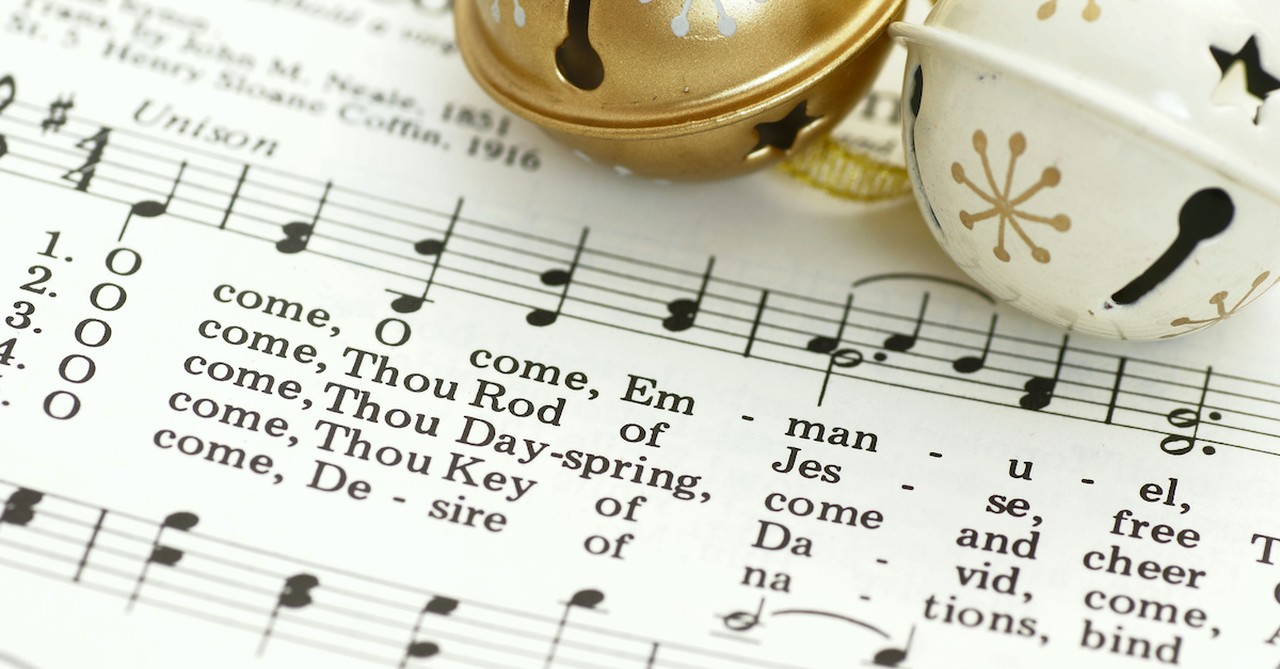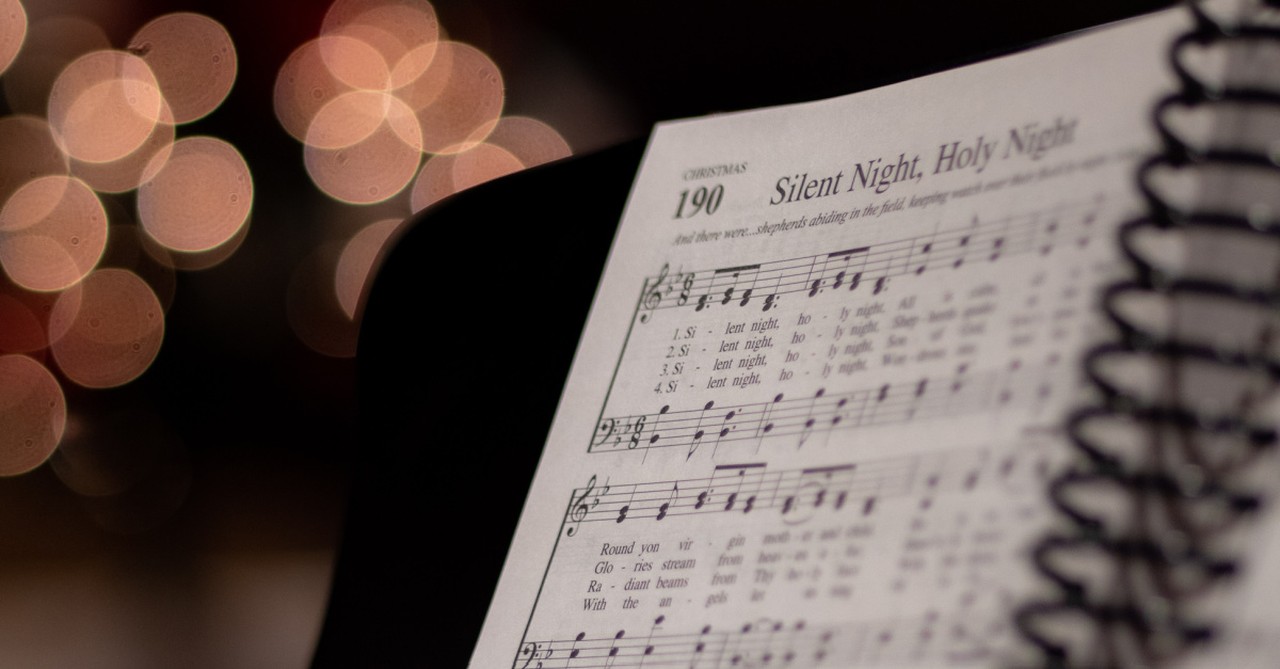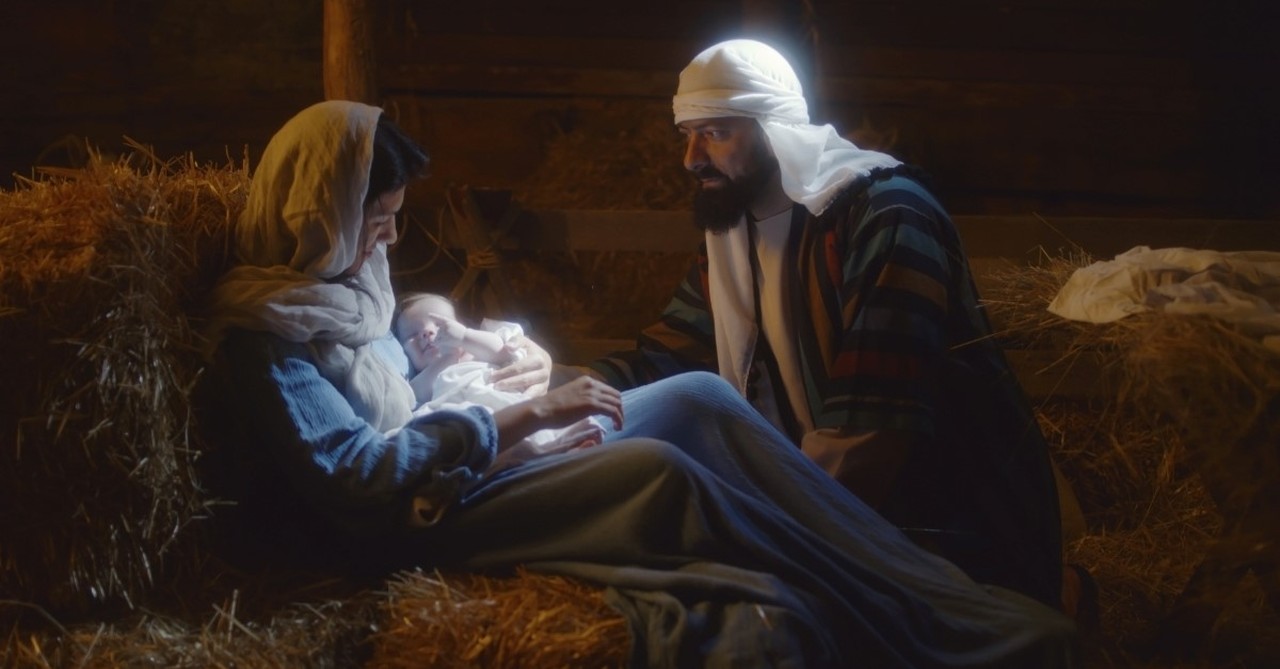7 Christian Christmas Carols with Powerful Messages

A few years ago, during Advent, I signed up to receive daily email devotionals from the C. S. Lewis Institute. I had expected a short reflection about the lyrics of carols, but instead I experienced an interactive Advent devotional that invited me to sing along with the songs and consider the beauty of carefully selected paintings. With each carol I read and sang, I was encouraged to reflect anew on Jesus’ coming and His promise to come again. The carols had me not only thinking about these truths but declaring them.
Songs have a way of impacting us emotionally and shaping our beliefs. Churches recognize the power of music to instruct us, which is why worship songs and hymns are usually carefully chosen to fit a biblical theme or lesson. This is true during normal services as well as Christmas.
If we are searching for a way to remind ourselves of the joy of Christmas and the hope of Jesus’ return, then listening to and singing along with specifically chosen Christmas carols can help us. We will worship our Savior and declare truths we need to hear.
Let us consider adding our voices to the following seven Christian Christmas carols with powerful messages.
Photo Credit: ©Getty Images/Marcos Elihu Castillo Ramirez
1. “O Come, O Come, Emmanuel”

1. “O Come, O Come, Emmanuel”
SLIDE 1 OF 7
A traditional Advent hymn that encapsulates the longing that the Jewish people felt for the Messiah’s coming and our longing today for His return. Based on the ancient Antiphons used by the church, “O Come, O Come, Emmanuel” repeatedly calls on the Lord Christ to come using various titles to address Him. He is called Immanuel or “Emmanuel,” “Wisdom from on high,” “Branch of Jesse’s stem,” “Dayspring,” “Key of David,” “great Lord of might,” “Root of Jesse’s tree,” and “Desire of nations” or “King of nations” depending on the version. These titles are drawn directly from the Bible, including Isaiah 11:1, 10; 22:22; Haggai 2:7; Matthew 1:23; Luke 1:78; and Revelation 3:7.
Like Israel all those years ago, we are also waiting for our God to come and rescue us (see Philippians 3:20). He is the One who saved us from sin and death at His first coming and will finish His work at His next coming. Especially in the world today with the political tensions, wars, and disasters, we can agree with the song’s cry for the Lord to come and “Bid all our sad divisions cease and be yourself our King of Peace.” We long for Him to destroy death forever and “turn our darkness into light.”
With solemn music that invites contemplation and rejoicing, “O Come, O Come, Emmanuel” is a carol that expresses the longing and desire within our hearts – for our Savior to return.
Photo Credit: ©GettyImages/MKucova
2. “Silent Night”

2. “Silent Night”
SLIDE 2 OF 7
Another classic carol that is quintessential of Christmas is the German-based song “Silent Night.” The tempo is usually slow in this carol since singers and listeners are invited to ponder the holiness of the night of Christ’s birth. For on that night, our Savior, the Messiah, was born. That moment truly was, as the song declares, “the dawn of redeeming grace.” Jesus had come to save us.
Some believers may question the carol’s emphasis on silence and even calmness. It acknowledges the declaration of the angels to the shepherds that “a Savior has been born to you” (Luke 2:11-12). However, we may wonder how the song compares with the biblical account of Herod sending soldiers to kill all male children under the age of two in Bethlehem (Matthew 2:16-18). That certainly was not calm, peaceful, or silent! However, the song focuses on the original night of Christ’s birth, before the wise men came or Mary, Joseph, and Jesus fled to Egypt. The lyrics invite us into hushed stillness to consider anew the wonder of our Savior’s birth. Like Mary, we can ponder these events and treasure them in our hearts (Luke 2:19).
Our God took on human flesh and was born a virgin to defeat sin and death. On that night of His birth, Mary and Joseph, and all the shepherds, witnessed the holy arrival of our Lord. We rightly remember through this carol that it was a “Silent night, holy night.”
Photo Credit: ©Aaron Burden/Unsplash
3. “Joy to the World”

3. “Joy to the World”
SLIDE 3 OF 7
Written by hymn writer and theologian Isaac Watts, “Joy to the World” is a triumphant carol based on Psalm 98. Although lots of us may think that the joy is solely because of Jesus’ first advent, the song also looks to His return. We are equally declaring the joy and wonder that will accompany the second advent. How else are we to take the third verse of the song (though it is often omitted in renditions of the carol)? – “No more let sins and sorrows grow,/ nor thorns infest the ground;/ He comes to make His blessings flow/ far as the curse is found,/ far as the curse is found,/ far as, far as the curse is found.”
At Christ’s return, He will establish His Kingdom, and we will see the beginning of the reversal of the curse. No longer will flowers, trees, and crops be choked by thorns (Isaiah 55:12-13). No longer will any animal prey on another (Isaiah 11:6-9). In eternity with Christ, there will be no more sin or sorrow, and death will be swallowed up in victory (Isaiah 25:8; 1 Corinthians 15:54; Revelation 21:4). As Revelation tells us, “No longer will there be any curse” (Revelation 22:3, NIV).
Praise is the only suitable response to knowing that our Savior has come and is coming again. He is the King who deserves our worship, for even nature declares His glory (Psalm 19:1). We can add our praise now, extolling the wonders of His love.
Photo Credit: SWN Design
4. “Good King Wenceslas”

4. “Good King Wenceslas”
SLIDE 4 OF 7
Although this song sets the story of Wenceslas on the feast of Saint Stephen, which occurs the day after Christmas, “Good King Wenceslas” is a well-known Christmas carol, Wenceslas was a historical prince of Bohemia. According to tradition, he had a heart for the poor and is remembered as a saint in some church traditions.
In the story of the song, he sees a poor peasant gathering wood for a fire. Learning from his servant where the man lives, Wenceslas instructs the page to gather food and pine logs to take to the man in need. The rest of the song follows their journey through the frigid weather. Displaying his care for others, the ruler eases the struggle of his servant by blocking him from the wind and allowing him to walk in his footsteps (instead of trudging through the snow). Listeners are presented with this lesson: “Therefore, Christian men, be sure, while God’s gifts were possessing,/ You who now will bless the poor shall yourselves find blessing.”
Giving is at the heart of Christmas. The Father gave us His Son, and Christ the Lord gave His life to save us (John 3:16; Romans 5:8). God has entrusted each of us with gifts and resources that we can use to bless others, especially the poor and hurting. The Lord takes delight in our willingness to give freely (2 Corinthians 9:7). By singing along to “Good King Wenceslas,” we are reminded of the responsibility and privilege of showing generosity to others.
Photo Credit: ©iStock/Getty Images Plus/Metkalova
5. “I Heard the Bells on Christmas Day”

5. “I Heard the Bells on Christmas Day”
SLIDE 5 OF 7
Originally written as a poem by Henry Wadsworth Longfellow, it has since been used as a Christmas hymn. Longfellow penned these words during the Civil War, a time when life seemed bleak. All he saw was hatred abounding, not peace or goodwill during that wartime Christmas.
This carol is just as relatable and needed today as it was when Longfellow first drafted the poem. Christians today despair of the darkness in the world and the suffering that is apparent locally and across the world. Lots of us likely want to bow our heads with Longfellow.
Yet, the song takes a dramatic turn. “I Heard the Bells on Christmas Day” points us to the chiming of church bells to remind us that “God is not dead, nor doth He sleep;/ The wrong shall fail, the right prevail,/ With peace on earth, goodwill to men.”
Why is there hope in times of despair? Because God has given us the answer to the world’s problems in the Person of His Son. On that first Christmas, the Word took on flesh and made His dwelling among us (John 1:14). He has defeated the darkness and will return to right all wrongs. In Jesus, there truly is the gift of peace on earth and goodwill to men (Luke 2:14), Which is a hope we can take comfort in even when situations appear grim.
Photo Credit: Unsplash/Aaron Burden
6. “Go, Tell It on the Mountain”

6. “Go, Tell It on the Mountain”
SLIDE 6 OF 7
Upbeat and joyful, “Go, Tell It on the Mountain” is an African American spiritual that declares the good news of Jesus’ birth as the Savior of the world. Listeners are encouraged to go and tell others about Christ’s coming as the story of His birth is recounted.
We are reminded of the shepherds’ surprise at seeing the glory of the Lord shining around them and hearing the news of the Messiah’s birth (Luke 2:8-15). The song specifically mentions that the shepherds trembled, which correlates with the biblical description of their terror (see Luke 2:9-10). When the shepherds traveled to see Christ, they found Him in a humble and lowly manger (Luke 2:16). As the carol declares, “God sent us salvation / that blessed Christmas morn.”
Adding our voices to this joyous song, we are drawn into praise for God and encouraged to share the good news of Jesus with others. Our salvation has come! Let us go and proclaim it to all, just like the shepherds did (Luke 2:17-20).
Photo Credit: Getty Images/EvgeniyShkolenko
7. “Come, Thou Long Expected Jesus”

7. “Come, Thou Long Expected Jesus”
SLIDE 7 OF 7
Like “O Come, O Come, Emmanuel,” the beloved hymn “Come, Thou Long Expected Jesus” expresses our hope and longing for Jesus’ return while looking back at His first coming. Charles Wesley wrote this hymn and many other well-known carols, such as “Hark! The Herald Angels Sing.” In the song that calls for Jesus to come, we desire for all sins and sorrow to cease. This longing is met in Christ—the One our hearts desire and find joy in.
Wesley infused deep theological meaning into “Come, Thou Long Expected Jesus,” and we can connect many Scripture references with the lyrics. He wrote about Jesus being born to free us from sin, a reflection of the meaning of Jesus’ name in Matthew 1:21. The Lord Christ is the hope and consolation of Israel, which Simeon and others were awaiting (see Luke 2:25-26). We, too, await the great Desire of the nations (Haggai 2:7) who will return to rule as the King.
Remembering that Wesley wrote this Advent hymn with the poor and orphaned in mind gives us a greater perspective. Jesus will come to put an end to all oppression and injustice. His deliverance was for the Israelites who long awaited the coming Messiah and for us. Like the faithful of old, we wait and long for Christ’s second advent. In that day, there will be no more slavery, suffering, or sin.
And so, we pray and sing the words of this hymn: “Come, thou long expected Jesus,/ born to set thy people free;/ from our fears and sins release us,/ let us find our rest in thee.”
Photo Credit: Getty Images/BeritK


Originally published December 23, 2024.






